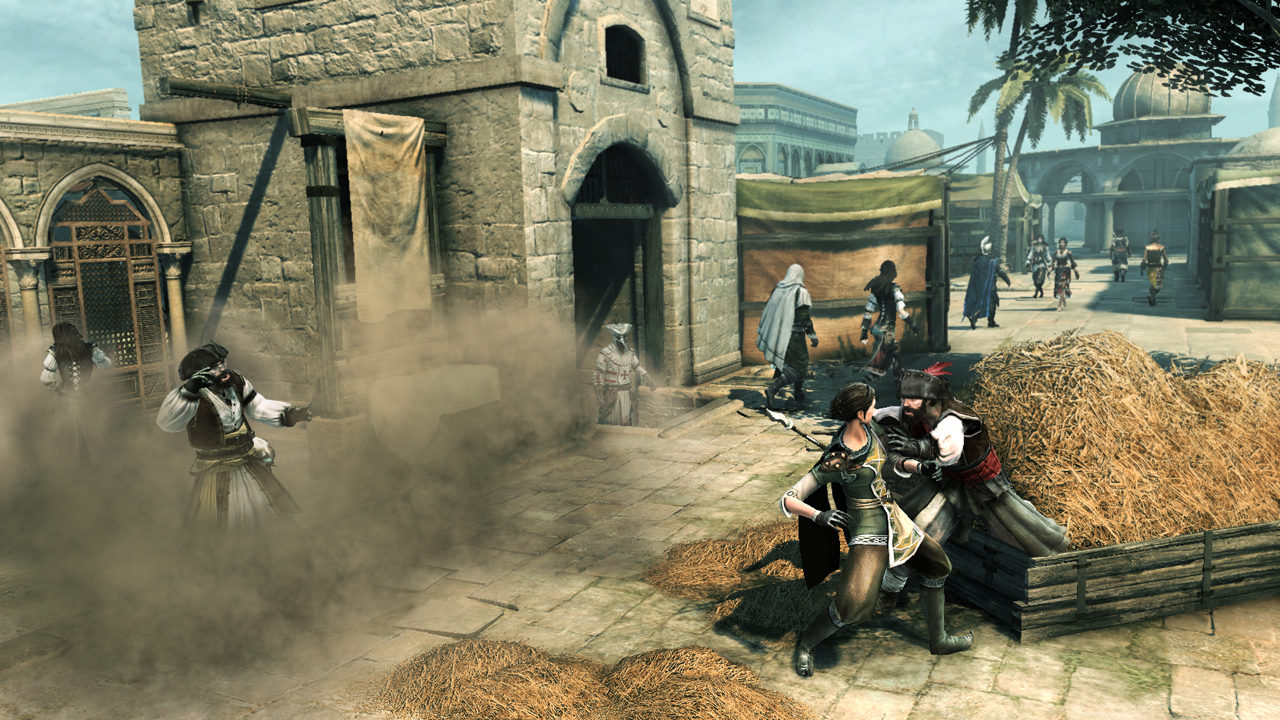Why you can trust 12DOVE
Then, once they’ve done enough to reach level 10, you’ll be able to assign them full-time to a Den, which kicks off a new quest in which they’ll need Ezio’s help to track down a local troublemaker (actually one of the multiplayer characters). They’ll fail, of course, but the attempt will raise their level cap to 15; once they reach it, they can complete the second half of their assassination quest and will be permanently assigned to their Den, thereby protecting it from attack.
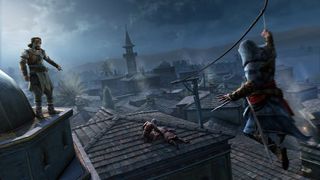
That’s another thing – your Dens, once captured, can be targeted and attacked by Templars. See, this time around, your “infamy” – the little meter that fills whenever you steal, murder or start fights with guards – actually means something. It’s been replaced by “Templar awareness,” and if it fills up, you’ll have a short grace period to whittle it back down by bribing heralds and killing witnesses. After that, the Templars will try to take back one of your unsecured Dens.
If that happens, you’ll be able to jump into a tower-defense minigame, which – despite technically being a punishment – is one of Revelations’ most enjoyable new additions, inviting you to set up Assassins with crossbows and guns on rooftops to guard against waves of marauding Templars and their occasional siege engines. Cannon fire and Ezio’s hidden gun can be used to thin the Templar ranks quickly, and eventually, you’ll unlock defenses including grenadiers, hand-to-hand fighters and barricades with gun-turret emplacements.
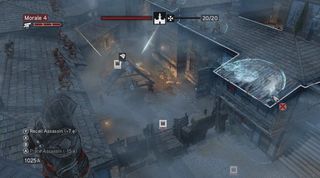
The other side tasks mainly involve scanning areas for ancient books lost to history (a less interesting replacement for the last two games’ paintings, which apparently would have been anathema in the Muslim world), and taking on faction quests, of which there are two. No, not two factions – two quests, one for the Mercenaries and one for the Thieves (the Courtesans of earlier games are replaced by squads of belly-dancing Romani, incidentally). They’re still enjoyable, but after the intimidating wealth of side missions in Brotherhood, the offerings in Revelations seem disappointingly sparse.
Now the bad news
You may have noticed that, up until this point, we haven’t said much about Revelations’ story. More so than in a lot of other modern games, the storyline of Assassin’s Creed is central to the experience of playing the games, and while scaling walls and leaping across rooftops is fun, devoted fans have gotten heavily invested in the history-manipulating Templars, the mysterious First Civilization and the development of Ezio and Desmond as characters.
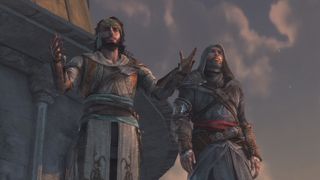
And then, of course, there’s the question of just what the hell happened at the end of Brotherhood, which had one of the most frustrating, confusing cliffhanger endings since Halo 2. The good news is that at least one of the big questions Brotherhood left us with is answered (somewhat unceremoniously) in the game’s opening act.
The bad news is that, if you’re hoping for another epic storyline that sees Ezio and Desmond grow and develop in interesting ways, you’re going to be disappointed. First, let’s talk about Ezio’s narrative: while the previous two games saw him dismantling and undermining conspiracies run by colorful historical figures, this one sees him trying to find the keys to a library before a bunch of generic Templar nobodies (who never really have a chance in hell of finding them anyway). The “real” villains aren’t revealed until fairly late in the game, and when they are, they tend to bite the dust before they do anything too villainous or memorable. They don’t even seem that bad, really, which makes it less than satisfying when Ezio finally slides his blades in.
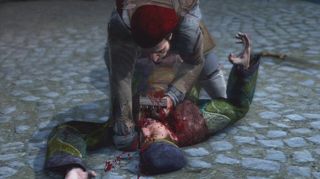
Also, none of the allies we got to know over the last two games return in Revelations. Considering this is purportedly Ezio’s final adventure, it would have been nice to see at least a few of them get a proper send-off. Instead, Ezio gets a handful of new allies who are either A) utterly devoid of personality, or B) charming, but don’t get enough screen time to really leave their mark. The only real standout is Ezio’s romance with bookshop owner Sofia Sartor, which – despite feeling a little forced and awkward – nevertheless gives Ezio a chance to finally put aside his air of dry, world-weary confidence and show a little glimmer of his old cocky charm.
At certain points, Ezio’s narrative gives way to a second one – that of Altair, the protagonist of the first Assassin’s Creed, who’s stored his memories in the keys Ezio’s trying to track down. These six memories – which take place years before, immediately after, and then years after the first game – are a fun change of pace and an opportunity to return repeatedly to the familiar fortress of Masyaf. They’re also some of the more memorable parts of the game, especially for longtime fans of the series, but they’d have been even more memorable if they hadn’t been so short.

Then there’s Desmond. As interesting as he became in Brotherhood, he spends Revelations in a coma – or, more accurately, confined to Animus Island, a dreamlike but dull environment where he’s occasionally visited by his enigmatic mentor, Subject 16, and listens to the voices of his Assassin friends as they fret about his condition. Here, after collecting enough Animus Data Fragments (which replace the collectible feathers and flags of previous games), you’ll be able to jump into a handful of first-person puzzle levels that reveal key things about Desmond’s past, filling in the details of events that fans kind of knew about already.
The levels themselves seem at least partly inspired by Portal, with Desmond creating platforms and ramps to work through stark, futuristic environments, and they’re an enjoyable departure from the central gameplay. However, their voiceovers and static-image projections don’t really add anything new or interesting to Desmond’s character. If anything, they just flesh out his backstory a little, and in that respect they feel like a missed opportunity. Especially since they replace the brilliant Glyph and Cluster puzzles, which provided a measure of subversive social commentary that’s completely absent here.
To be fair, all three plotlines build toward a genuinely great finale that’s in turns explosive, then touching, then explosive again. Until then, however, it plods and meanders through a storyline that, while serviceably interesting for a videogame plot, feels flat, disappointingly underdeveloped and well below the series’ usual standards.
Next page: The multiplayer, and the verdict
More info
| Genre | Adventure |
| Description | The fourth Assassin's Creed game, Revelations will be set in Constantinople and will reportedly be the final game in the series to star Ezio Auditore. |
| Franchise name | Assassin's Creed |
| Platform | "PS3","PC","Xbox 360" |
| US censor rating | "Mature","Mature","Mature" |
| UK censor rating | "Rating Pending","Rating Pending","Rating Pending" |
| Release date | 1 January 1970 (US), 1 January 1970 (UK) |

Ahead of GTA 6, Take-Two CEO says he’s “not worried about AI creating hits” because it’s built on recycled data: “Big hits […] need to be created out of thin air”
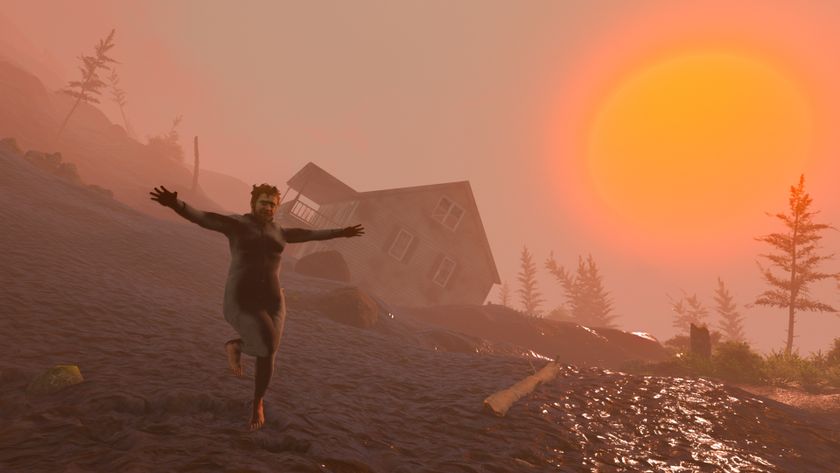
Getting Over It creator Bennett Foddy threatens the world once again: If you want Baby Steps to be a brutal rage game, "you can inflict that on yourself"

A Simpsons Hit and Run Remake will probably never happen – and I don't want it to
